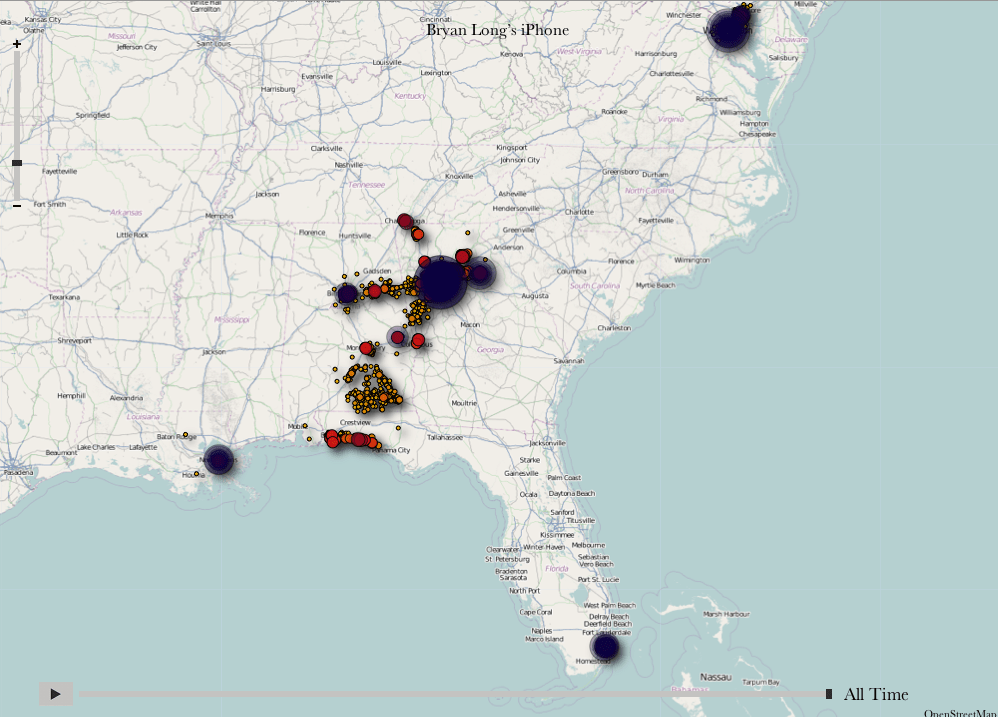When I learned that Apple enabled every iPhone and iPad to track location data, I was curious more than concerned. I really wanted to see what my personal travel map looked like. It turns out to be pretty cool.
Naturally, I spend a lot of time in Midtown Atlanta. My office and home are both on Peachtree Street. I made a few trips out to the suburbs, have spent some time in Athens and recently drove over to Columbus. The iPhone data correctly logs my trips to Birmingham, Montgomery, Troy and Opp, Alabama. The iPhone logged my vacations to the Florida panhandle, Virginia and upstate New York. The device recorded my stop in Miami before I turned the iPhone off and boarded a cruise ship.
Not only can I use the data to map exactly where my iPhone pinged cellular towers, but I can hit the play button to see my movements over the life of the phone.
Finding the data was simple. I downloaded the iPhone Tracker and the application did all the work in just seconds.
Deciding how I feel about the data collection is a little more complicated. For one thing, part of my desire to own a smart phone was the ability to store this kind of data. Call me a geek but I really love data collection. I don’t always know what I want to do with it but I kind of like having it available, if needed.
For another, phone companies have been collecting data location for years. This isn’t news. But from what I can tell, logging the data on individual phones, where it is easily recoverable, may be a new step.
Much of my concern grows primarily from Apple’s silence on the issue. Exactly what are Apple and AT&T doing with my data? And shouldn’t they have asked permission first?
I would have happily turned on a location tracking function on my iPhone — or simply kept it turned on — if I had been given the choice. Maybe I’m one of the few users who would make that choice but I still think Apple should ask every user a simple question: “May we track your location?”
